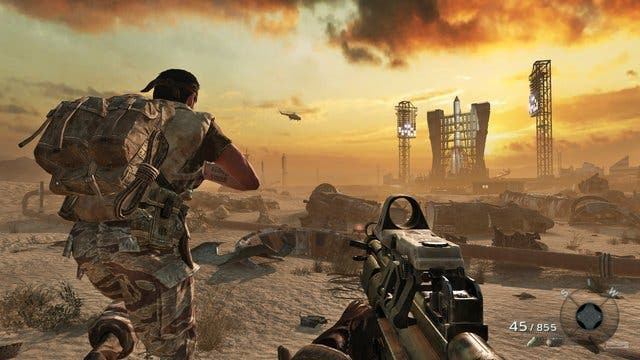Where does my money go?
When you spend ?40 on a game, who gets it? Eurogamer investigates.
The fact remains that developers, the creators of the games we love, receive less than 10 per cent of the increasingly bulging revenue pie. The financial reward for creating successful games can obviously be gratuitous: We hear stories of John Carmack's garage packed with Ferraris, Cliffy B rubbing shoulders with US talk show hosts and COD creators Vince Zampella and Jason West signing with talent agencies and think, well, it can't be that bad. But for so many game creators, 10 per cent is as good as it gets. And sometimes, they can end up with nothing.
"If the product never sells more than it takes to recoup the development budget, there are no royalties paid because all those royalties are going back towards what the publisher funded in the first place," Andy Payne, managing director of Mastertronic Group, tells Eurogamer.
Is this situation, this business model, fair?
"If you look at that equation, everybody is taking their fair share," Oliver says. "That leaves you where you are. It's a fact of life."
Payne agrees. "Everybody thinks everyone else is making money out of them. Everyone," he says. "There are a lot of pockets there to fill. It's little bits and pieces. People think it's outrageous because they don't understand what else is in the value chain. There's not much else at retail you can do to cut links out of that chain."
VAT is, of course, an immovable object. But shops decide how much games cost to buy. Could that be cheaper? Unlikely, Oliver and Payne agree. And publishers are set in their ways because of the cost of production. To produce Call of Duty, Activision pays a horde of computer scientists, artists and animators a salary over the course of two years of development - a huge, undisclosed amount.
"Publishers will try to get as much as they can out of a game," says Eidos life president Ian Livingstone. "That's what they're in business for." And, the better and more popular the game, the "more likely" a publisher will be able to "command a large piece of the pie". "It's supply and demand," the business brains behind Lara Croft says.

Publishers and shops engage in an endless tug of war over the cost of games, as Oliver explains. "When EA's selling out its games, it's going to have its sales manager on one end of the phone saying, 'This is the wholesale cost of my product.' If you're a little guy and you're dealing direct with this sales person, really you're going to have to pay what EA says or just not take it.
"If you're Tesco or somebody with buying power, you can negotiate a percentage off. But EA isn't going to move much because it knows however much it moves it's always moved that much. If you knock five per cent off for me this time, you've just knocked five per cent off every product going forward. It's going to be difficult to get back from this place.
"So they won't negotiate much. They'll say, 'Other people are taking it. If you don't want the stock, that's fine. We'll sell it to other people.' They have to act pretty hard-nosed, one, to keep their profit margin, and two, to not set a precedent for the future."
Oliver believes publishers could shake things up a bit, however, by selling games at half the price and, therefore - theoretically - shift twice the number of units. But, "It's going to take a brave, maybe even a stupid publisher to reduce the price when they know the consumer is going to pay it."
In some cases we've even seen the publisher raise the traditional RRP. One recent, high-profile case was Activision's Call of Duty: Black Ops. "If I brought out the next Modern Warfare and I know I'm going to sell 15 million copies at $50, am I going to take the punt?" Oliver wonders. "I already know that, and I can bank on that. Am I going to take the punt to drop the price significantly, hoping to get those extra sales, when it's not price that's driving the buying decision? I either want that game or I don't want that game.
